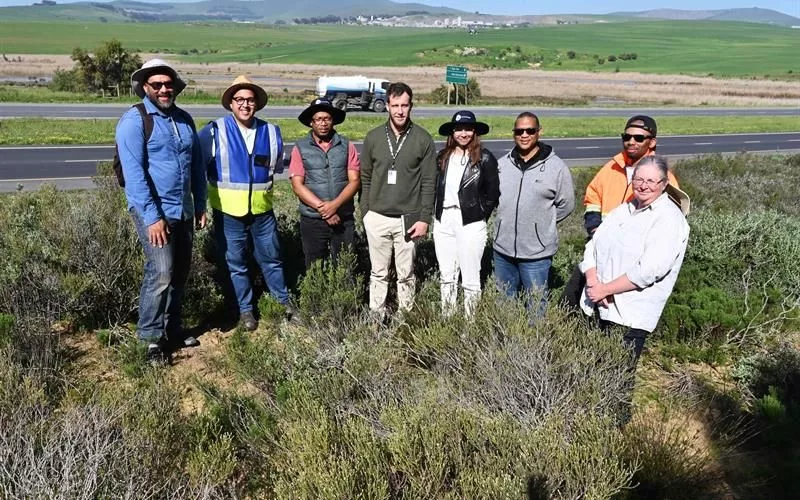The Construction Education and Training Authority (CETA) faced intense scrutiny during its recent committee appearance, as concerns were raised about financial mismanagement, inadequate governance, and a toxic work environment. The committee has demanded comprehensive reports and mandated higher standards of accountability, transparency, and financial management. CETA’s substantial expenditure on legal matters and an overseas study trip intended to observe foreign construction practices have also been criticized, leading to further doubts about the Authority’s governance and fund management practices. The need for higher standards of accountability, governance, and financial management within organizations like CETA has been emphasized.
The Expectation of Accountability from CETA
CETA’s recent committee appearance raised concerns about financial mismanagement, inadequate governance, and a toxic work environment. The committee demanded comprehensive reports on these issues and mandated higher standards of accountability, transparency, and financial management within the Authority. Immediate corrections are needed to address the continued fiscal inadequacy of the Services SETA, and an in-depth evaluation of the board’s effectiveness is required to address the recurring problem of inadequate governance at CETA.
The Construction Education and Training Authority’s (CETA) recent committee appearance stirred up a storm among the Portfolio Committee on Higher Education and Training members. Statements made by CETA’s Chairperson, Mr Tebogo Letsie, suggesting their committee appearance was based on mere rumours, sparked intense reactions. The perceived disregard towards the committee members, responsible for ensuring judicious public fund usage, was taken as an insult by many.
The CETA Chairperson’s dismissive comments overshadowed the briefing held on the 26th of August, 2024. The meeting included representatives from CETA, the Services Sector Education and Training Authority (SSETA), and the National Education, Health and Allied Workers Union (NEHAWU). The discussion encompassed numerous issues such as audit action plans to rectify audit findings of the 2022/23 fiscal year, employee wellness, allegations of corruption, and administrative irregularities.
Financial Management and Governance Issues
A major concern raised by the committee was CETA’s substantial expenditure on legal matters. Reports indicate that the Authority has shelled out a shocking R300 million dealing with various legal affairs. This alarming sum highlights the financial and administrative difficulties CETA is grappling with, leading the committee to question the Authority’s governance and fund management practices.
Further controversy surrounds CETA’s overseas study trip intended to observe foreign construction practices. The trip has faced significant backlash and negative media coverage, criticized as unnecessary and ostentatious. CETA’s CEO, central to the media scandal, maintained that the trip was postponed, not cancelled. However, Mr Letsie opposed this viewpoint, affirming his intention to officially call on the Minister of Higher Education and Training and the Director-General to abort the trip.
The relevance of the trip has been called into question as the committee pointed out that the benchmarking countries were not known for their construction practices. These concerns lend further support to Mr Letsie’s call for trip cancellation.
A Pattern of Inadequate Governance and Financial Mismanagement
The Services SETA is another cause for worry due to its financial mismanagement. The Authority has received a qualified audit opinion for four consecutive years, beginning with the 2018/19 financial year. Immediate corrections are needed to address this continued fiscal inadequacy. The committee recommends the Director-General in charge of SETAS to take on the responsibility of resolving these matters or face potential repercussions.
CETA’s governance issues are a recurring problem. Previous incidents of the Authority being placed under administration in 2011 and 2020, followed by the boards’ dissolution, suggest a pattern of inadequate governance. This calls for an in-depth evaluation of the board’s effectiveness.
Toxic Work Environment and the Need for Transparency
On a distressing note, a representative from NEHAWU reported widespread bullying and victimisation within the Authority. The representative candidly expressed her fear of retaliation for criticizing the CEO, spotlighting the Authority’s toxic work atmosphere.
The committee has demanded comprehensive reports on their governance issues before the current board’s term concludes. They have also mandated that no advertisements for new board nominations be issued until these reports are submitted. A request has also been made for a roster of all senior executives, along with their professional track records for the past decade.
Addressing these issues and restoring confidence in the Authority’s effectiveness and transparency is of utmost importance. The recent events have emphasized the need for higher standards of accountability, governance, and financial management within organizations like CETA. It is anticipated that the required changes will be swiftly executed, ensuring that the Authority operates in the best interest of the public and its employees.
What issues were raised during CETA’s recent committee appearance?
Concerns were raised about financial mismanagement, inadequate governance, and a toxic work environment. CETA’s substantial expenditure on legal matters and an overseas study trip intended to observe foreign construction practices were also criticized.
What has the committee demanded from CETA?
The committee has demanded comprehensive reports on governance issues, higher standards of accountability, transparency, and financial management, and no advertisements for new board nominations until these reports are submitted.
What financial management issues has CETA faced?
CETA has faced substantial expenditure on legal matters, leading to doubts about the Authority’s governance and fund management practices. The Services SETA, which is under the Director-General’s purview, has also faced financial mismanagement.
Has CETA faced governance issues before?
Yes, CETA has been placed under administration twice in the past, in 2011 and 2020, followed by the boards’ dissolution. This suggests a recurring problem of inadequate governance.
What was reported about the work environment at CETA?
A representative from NEHAWU reported widespread bullying and victimisation within the Authority, highlighting a toxic work atmosphere.
What changes are needed within organizations like CETA?
Higher standards of accountability, governance, and financial management are needed to restore confidence in the Authority’s effectiveness and transparency. Immediate corrections are needed to address financial and administrative difficulties.











